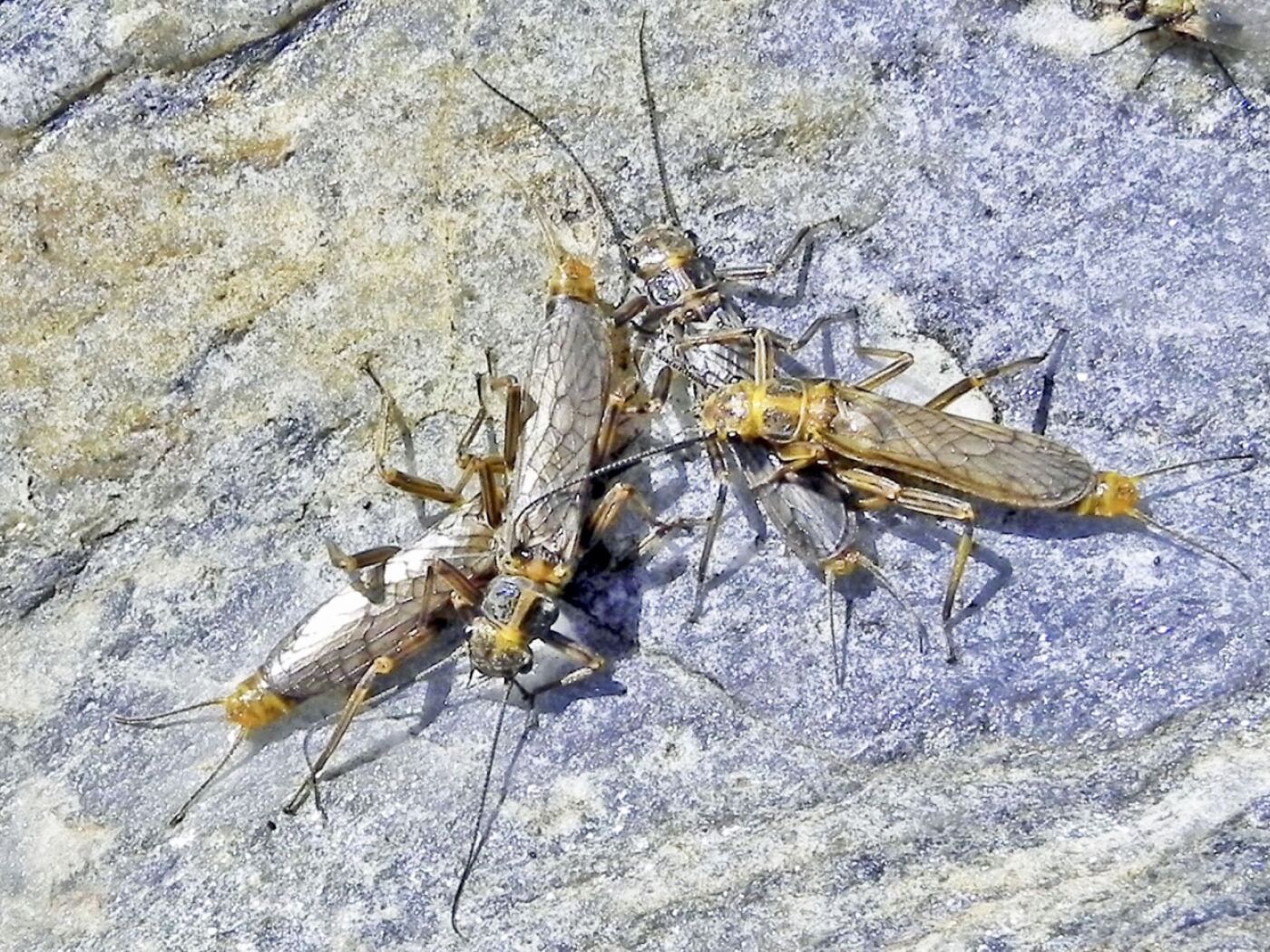
Swiss name Alpine stonefly ‘new species of the year’

The Swiss Systematics Society has named the Alpine stonefly species Dictyogenus nadigi as the "new species of the year 2025".
+Get the most important news from Switzerland in your inbox
In a recently published study, a Swiss researcher described six new species in this group. He named one species Dictyogenus nadigi in honour of the entomologist Adolf Nadig, who died in 2003. Nadig was a pioneer in researching the spring fauna of the Swiss National Park.
Switzerland is home to a great variety of stoneflies: 127 of the 516 species known in Europe live in Switzerland, the Swiss Systematics Society said on Wednesday. The species of the genus Dictyogenus are mainly found in the large torrents and rivers of the Alps up to altitudes of 2,700 metres.
Despite their widespread distribution, an alarming decline in stoneflies has been recorded in many regions, the society added. This is also the case in Switzerland, where around 40% of the species are on the endangered Red List.
+ Biodiversity loss in Switzerland in six graphs
Indicators of water quality
Stoneflies belong to the group of aquatic insects. They get their name because they prefer to land on stones on the shore.
Because they are only found in intact streams and rivers, stoneflies are used as indicators of water quality. Their presence indicates that a body of water is not polluted and is well supplied with oxygen.
+ Water quality in Swiss rivers and lakes improves
Aquatic insects are fascinating creatures, the society said: in many species, the adults only have a very short life in the air. They die after laying their eggs in the water. This is where their larvae develop – and a new cycle begins.
Translated from German by DeepL/ts
This news story has been written and carefully fact-checked by an external editorial team. At SWI swissinfo.ch we select the most relevant news for an international audience and use automatic translation tools such as DeepL to translate it into English. Providing you with automatically translated news gives us the time to write more in-depth articles.
If you want to know more about how we work, have a look here, if you want to learn more about how we use technology, click here, and if you have feedback on this news story please write to english@swissinfo.ch.

In compliance with the JTI standards
More: SWI swissinfo.ch certified by the Journalism Trust Initiative






























You can find an overview of ongoing debates with our journalists here . Please join us!
If you want to start a conversation about a topic raised in this article or want to report factual errors, email us at english@swissinfo.ch.